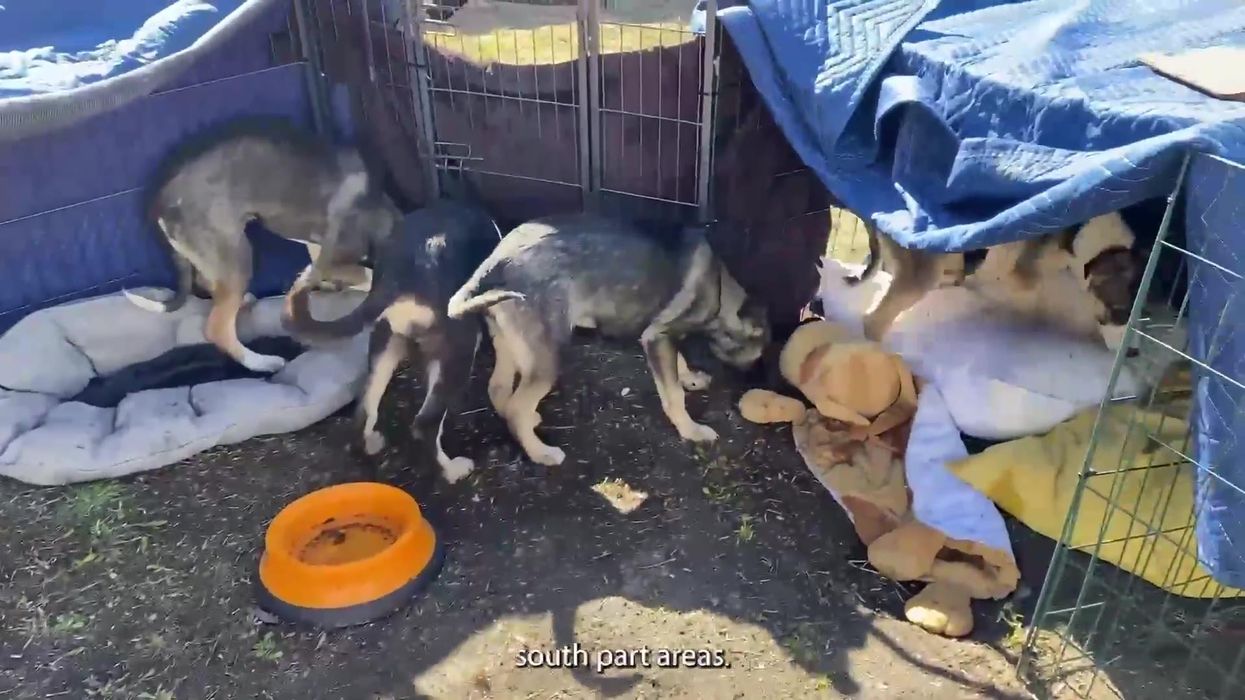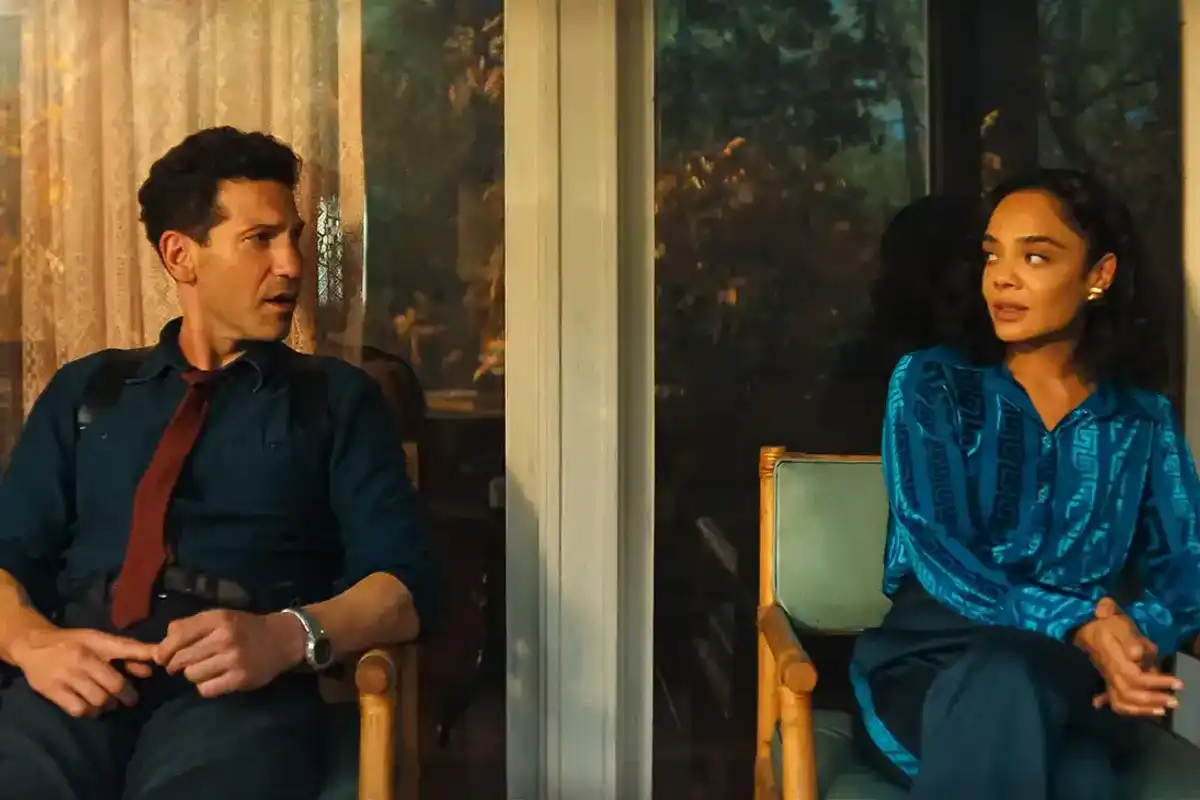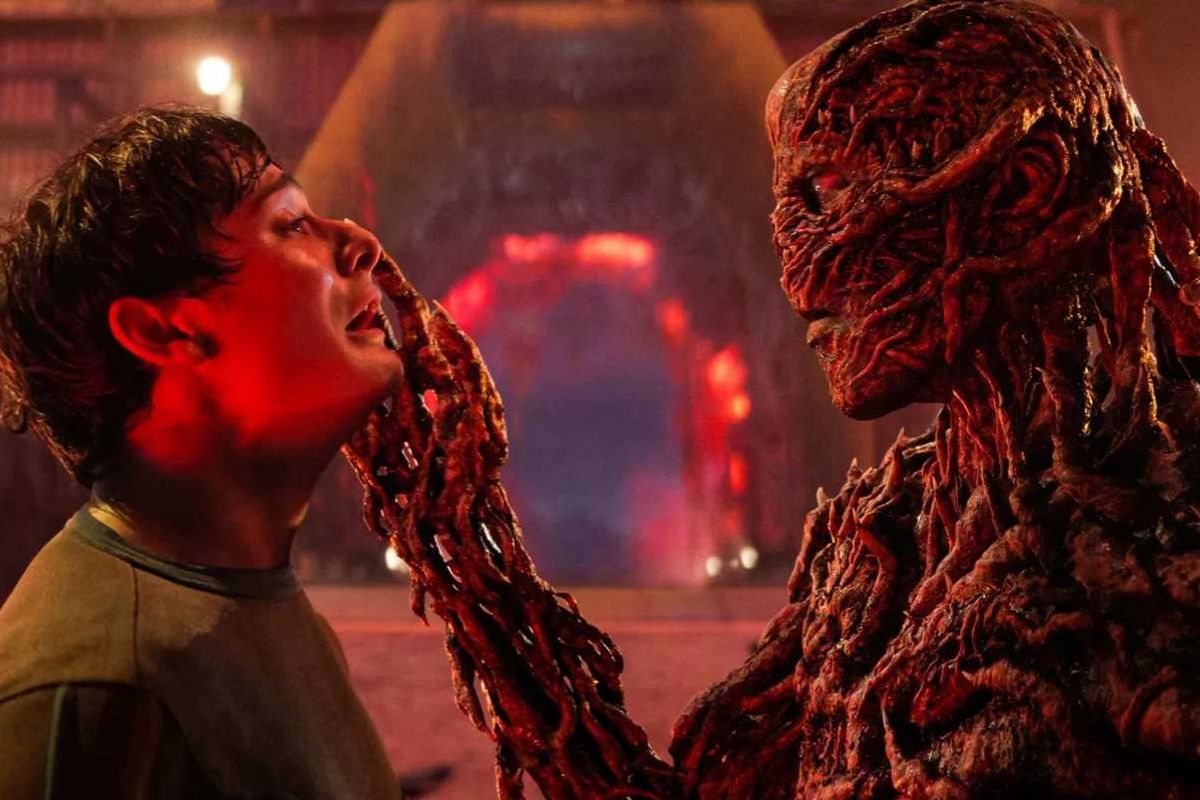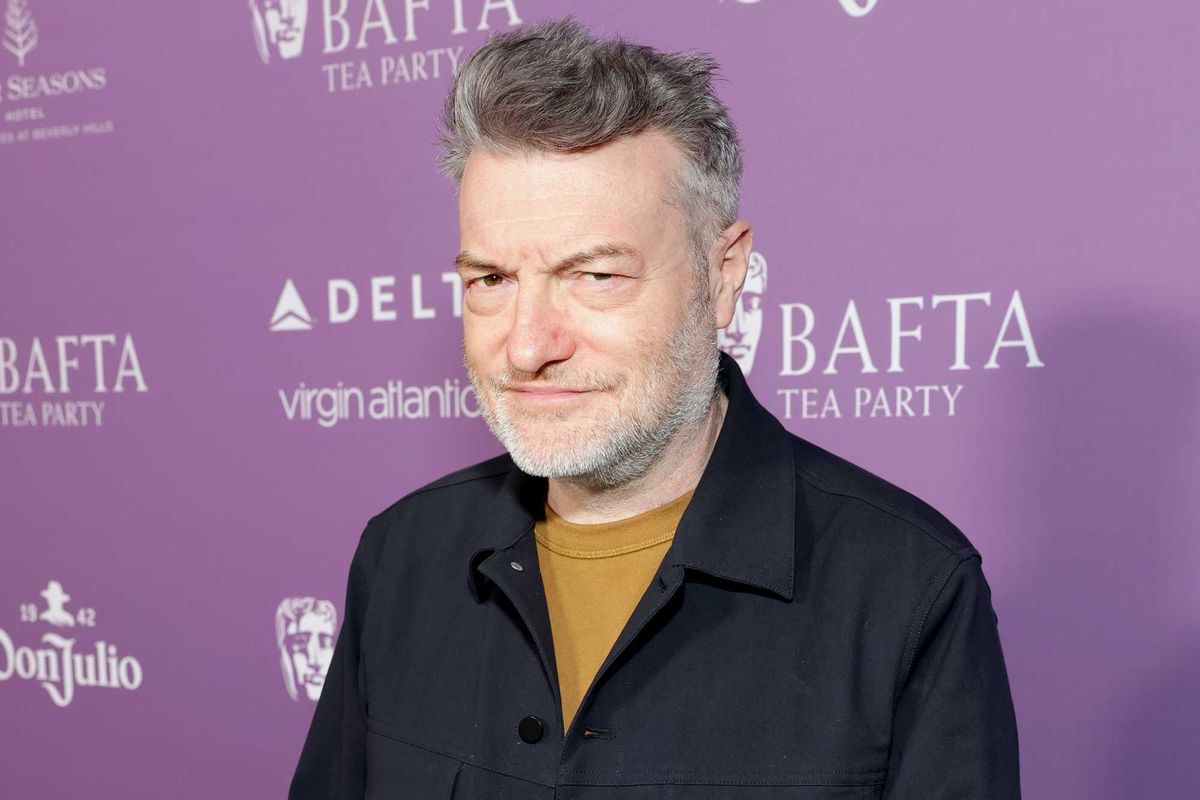Volunteers have been risking their lives and making dangerous journeys into war-torn Ukraine - to rescue more than 550 pets and bring them to safety.
Animal Rescue Ukraine, founded at the beginning of March, is made up of Patrick Westrup, an ex-royal guard based in Poland, and Joel Brejner, 39, who manages logistics from Denmark.
Patrick, who is based in a camp near the town of Medyka, travels into Ukraine several times a week to rescue cats and dogs and brings them back to Poland.
The 31-year-old drives trucks into Ukraine with hundreds of kilos of animal food and comes back to Poland with animals and people.
Although the focus is on animals, some people-only operations have been carried out for those who need medical care.
Since its inception, the small organisation has evacuated more than 3,000 people.
Animal Rescue Ukraine sources pets from shelters across the country, either via a tip-off from the community of volunteers in the camp or by being contacted directly via social media or telephone.
Sign up to our new free Indy100 weekly newsletter
The animals are kept there for five to 10 days where they are put through medical examinations before being sent off to a farm in western Poland where they are looked after and await adoption.
They also maintain a temporary shelter in Lviv, where the animals can be housed before they are taken to Poland.
The small organisation works in collaboration with Centaurus, a more established and well-connected foundation, that handles finding them homes.
Centaurus also provides transport and funds for the group to be able to make their trips into Ukraine.
In the future, Animal Rescue Ukraine hopes to set up a website through which the animals can be connected with either their previous or new owners, but until then Centaurus is in charge.
From his home in their container camp, with no running water, Patrick is making the nail-biting journey in and out of Ukraine multiple times a week.
He is in charge of evacuating both the animals and people from the war-torn country and maintaining animal shelters all over Ukraine stocked with food and supplies.
The day we talked to Patrick he was starting his first run to Kharkiv in the east of the country.
His mission was to bring food to a couple who own horses but had run out of food.
Patricks said: "Yesterday, I got in contact with people who have some horses in Kharkiv but they don't have any more food for them.
"At the moment they are trying to evacuate them to a small village around 150 kilometres west of Kharkiv.
"So I am on my way there to deliver some horse food for them, I have 700 kilos in the van."
This is the deepest the organisation has ever been into the combat zone, but Patrick remains as calm as ever, saying “there will be so many checkpoints … I’m pretty confident the Ukrainian soldiers will keep me safe”.
The organisation does its best to steer clear of areas where it might encounter Russian forces. This does not mean that they are far from contested areas, though, even after the battle of Kyiv was over, Patrick was close enough to hear gunshots from the battlefield.
He explained: “I was there right after the liberation, so the atmosphere was still pretty intense, at one of the drop-offs we made we could hear gunfire in the background, there were small groups of Russian soldiers in the area … who after they dropped their uniforms and grabbed their guns to hide, they got caught and tried to fight back."
The role of Animal rescue Ukraine and similar organisations play in maintaining animal welfare in the country is vital.
Patrick said: “We are crucial to them, it’s so hard for them to get food, and even to get money to buy food, even to find a place that sells food, it’s critical that someone comes and delivers food to them”.
Patrick often finds shelters severely overpopulated, struggling to keep the animals they care for fed and healthy. Without him and others like him, he says, many would simply not be able to operate.
When asked how long the shelters would last without him, he answered with a chillingly simple “probably not very long”.
The situation is quite dire, the supplies Patrick donates do not only support the shelters, but also the local population.
“The place I am going today, they are also getting requests from private citizens as well, and they send some of the food supplies we donate to people, with mail, around Ukraine.”
Even with the Russians’ change of focus pulling much of the fighting to the east, Patrick is not confident that things will get better.
He says that the volunteer community and others believe that another large Russian offensive is coming, although he admits this may just be a rumour
He also finds the Ukrainian people to be rallying, he says he has encountered more people coming back into the country and fewer leaving.
“They are having a very hard time with this but they are strong people, so I think they are dealing with it well, but there is also what we see at the border, that there are not a lot of people coming out anymore, but actually a lot of people coming back.”
The lasting impression that he has of the Ukrainian people is one of generosity.
He said: “Even though they don’t have a lot of food supplies and other stuff down here most of the time they are happy to share it with you, and it’s hard to say no because in their culture it is impolite”
Aside from the small donations from Centaurus, Joel and Patrick have been funding their operations on their own as the war continues it is becoming increasingly difficult to keep the organisation afloat.
“The operation down there is slowly falling apart. They don’t have enough resources, the Ukraine hype is going down, so we don’t get the donations we used to,” Joel explained.
SWNS reporting by Leo Black
The Independent has a proud history of campaigning for the rights of the most vulnerable, and we first ran our Refugees Welcome campaign during the war in Syria in 2015. Now, as we renew our campaign and launch this petition in the wake of the unfolding Ukrainian crisis, we are calling on the government to go further and faster to ensure help is delivered. To find out more about our Refugees Welcome campaign, click here. To sign the petition click here. If you would like to donate then please click here for our GoFundMe page.
Have your say in our news democracy. Click the upvote icon at the top of the page to help raise this article through the indy100 rankings.














